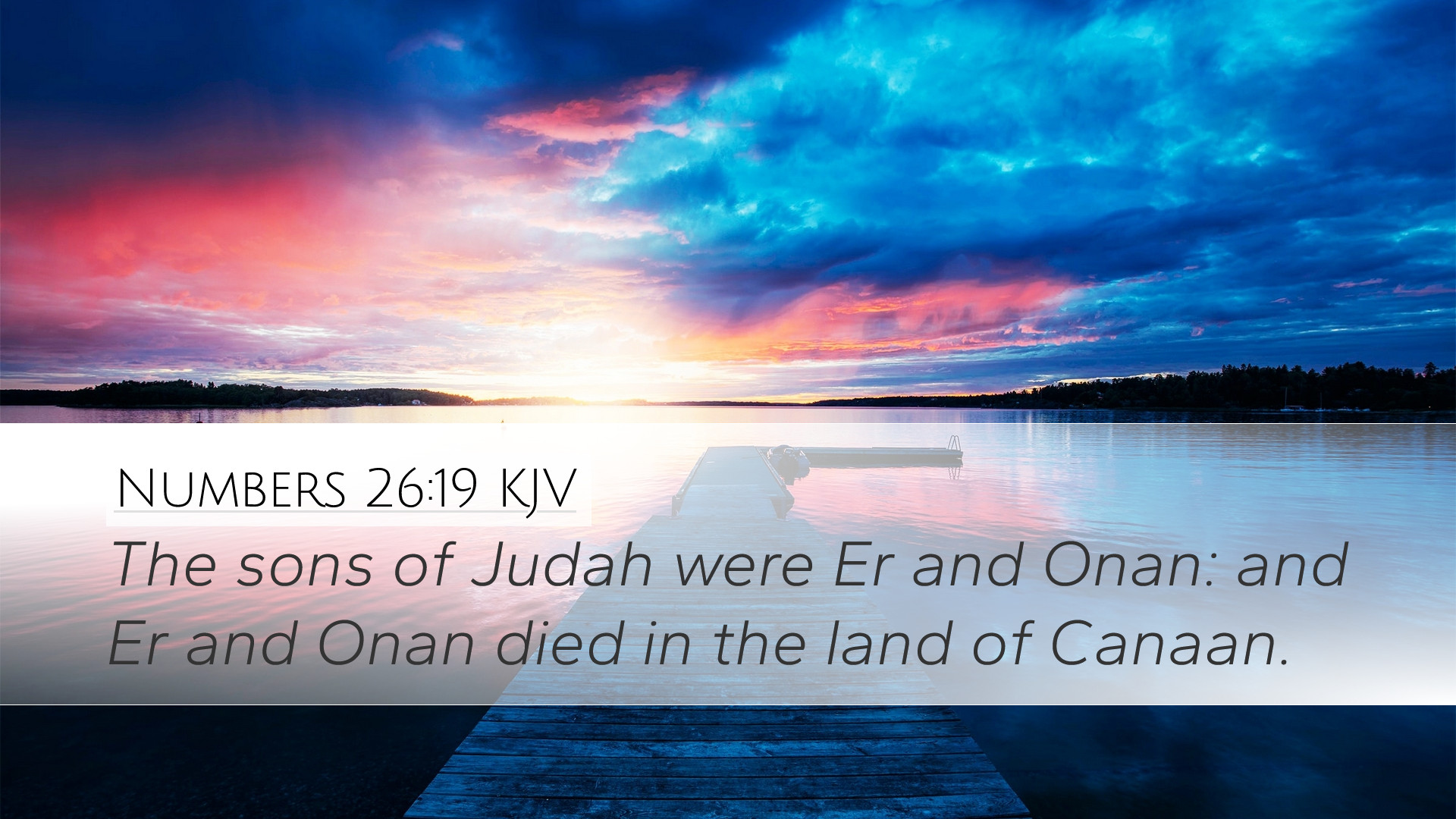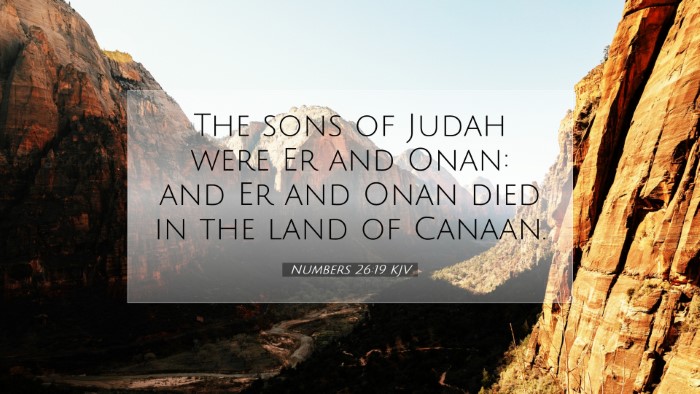Commentary on Numbers 26:19
Verse: "The sons of Judah were Er and Onan: and Er and Onan died in the land of Canaan." (Numbers 26:19)
Introduction
Numbers 26:19 presents a concise yet profound moment in biblical history, focusing on the lineage of Judah and the fate of his sons, Er and Onan. The significance of this verse extends beyond genealogy to encapsulate themes of sin, judgment, and divine sovereignty.
Contextual Background
This verse occurs within the framework of Israel's census conducted in the wilderness, addressing the arrangements for the inheritance in Canaan. The context suggests a reassessment of the tribes and their leaders as they prepared to enter the Promised Land.
Genealogical Significance
According to Matthew Henry, genealogies in the Bible serve several important functions. They establish the identity of the nation of Israel and its tribes, affirming God's covenant promises. The mention of Er and Onan, as sons of Judah, underscores the importance of the Judah line, which is significant given its prominence in later biblical history, including the lineage of David and ultimately, Jesus Christ.
Judgment and Death
Both sons, Er and Onan, met with premature death due to their ungodly actions (as outlined in Genesis 38:7-10). Albert Barnes highlights that their deaths serve as a stark reminder of God's judgment against sin. This elucidates a deeper theological reflection on how one's disobedience can lead to severe consequences, aligning with the broader narrative of Israel’s journey through the wilderness and their covenant relationship with God.
The Role of Canaan's Land
What makes this verse poignant is the reference to it being in the land of Canaan—a land promised to their ancestors. Adam Clarke notes that the deaths of Er and Onan within Canaan symbolize not just physical death but a spiritual failure to inherit the promises. Their demise stands in contrast to the collective journey of the people of Israel, as it represents the broader spiritual implications of the nation's covenant fidelity. The death of these two sons serves as a foreshadowing of the spiritual battles that the Israelites would face in Canaan.
Theological Implications
Numbers 26:19 speaks volumes about the character of God. The brevity of the statement regarding Er and Onan's deaths calls attention to the gravity of sin before a holy God. The juxtaposition of the promise of land and the reality of judgment emphasizes that God's promises are contingent upon covenant faithfulness.
Lessons for Today
- Sin's Consequences: The fate of Er and Onan is a testimony to the consequences of rebellion against God's commands. The church and believers today are reminded of the importance of moral integrity and the seriousness with which God regards sin.
- The Sovereignty of God: This passage affirms that God's sovereignty extends over life, death, and the intricacies of human lineage. His purposes are fulfilled regardless of human failure, as seen in the continuation of Judah's lineage through other sons.
- The Importance of Legacy: As leaders, parents, and teachers within the church, understanding the consequences of our actions on future generations is vital. The example of Judah's sons serves as a cautionary tale regarding the spiritual legacy we leave behind.
Conclusion
In summary, Numbers 26:19, while reflecting a moment of genealogical record, conveys a deeper narrative about human failure, divine judgment, and the overarching themes of redemption and legacy in God's plan. The insights gleaned from public domain commentaries underscore the enduring wisdom and relevance of this verse, making it a crucial focal point for theological reflection and pastoral ministry.


